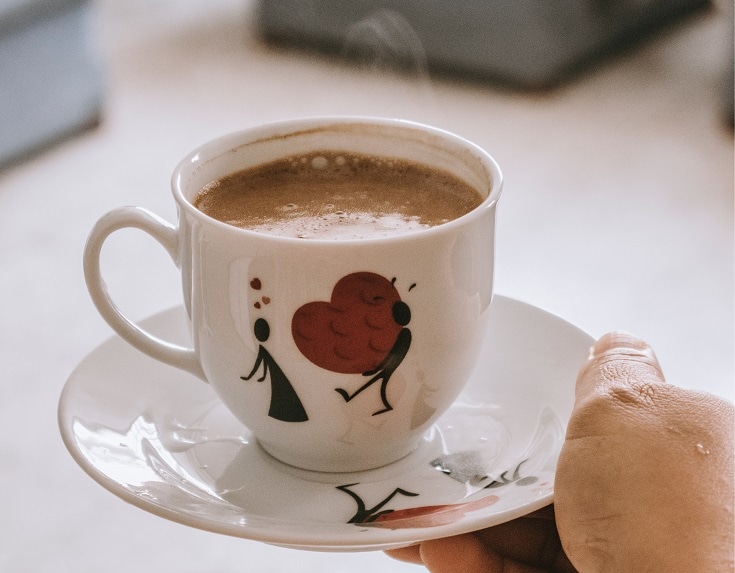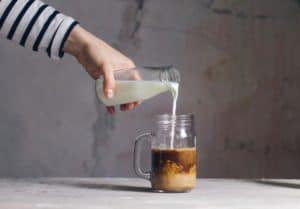
The sense of smell is tightly coupled to taste and plays a surprisingly large role in determining what flavors we detect when eating or drinking something. Wine connoisseurs make a habit of taking their time to smell their wine before they even take a sip. Coffee is similar, and many people underestimate the effect that coffee aroma has on how their coffee tastes.
In this article, we’re going to teach you all about coffee aroma and how it makes up a large fraction of your coffee tasting experience. Coffee aroma is one way that expensive, freshly roasted coffee differs from the pre-packaged coffee you might find in your local grocery store and one that we think is well worth paying for. Sit back and relax as we take you on a tour of coffee aroma and what it means to you.
Coffee Aroma and Taste
To illustrate the point that smell is the most important part of taste, consider that your tongue only has receptors that can detect five flavors: sweet, sour, salty, bitter, and umami – a Japanese word for the savory taste often found in cooked meat. Now ask yourself if you feel like you have tasted more than just these five tastes and their combinations in your life. We’re willing to bet that it seems to you like there are far more flavors than just these five, and that is the power of aroma.
Our noses have far more types of receptors than our tongues, and therefore, we can smell many more aromas than we can taste. Many of the complicated and wonderful tastes that foodies, wine lovers, and coffee fanatics delight in find their origins in smell.

The Importance of Fresh Coffee
Fresh coffee tastes better than stale coffee. That’s really all there is to it, but the details come down to aroma. Once a coffee bean is roasted, it starts losing flavor over about one month. After a month, roasted coffee will already have lost most of its aroma, and its taste will rapidly deteriorate. Green coffee lasts several months before it starts to go stale, but most people can’t roast their own coffee at home.
If you want to get the freshest and best-smelling – and therefore best-tasting – coffee around, you need to buy your coffee directly from a roaster. Most specialty coffee roasters roast to order, which means your coffee isn’t roasted until your order has been placed. This means that when your coffee arrives, it will be less than a week since it was roasted and will taste the best.
If buying directly from a roaster isn’t an option for you, then you can rely on the sniff test to guide you towards the freshest coffee available in your local store. Coffee that smells better will taste better, so choose the best-smelling coffee you can find.
RELATED READ: How to Find High-Quality Coffee Beans (Online & In Stores)

Leveraging Aroma for Your Benefit
Coffee enthusiasts and wine drinkers call how their drinks smell “the nose,” and spend most of their tasting time using their noses rather than their tongues. It’s easy to look at a wine taster huffing their wine and dismiss the idea as mere snobbery, but it’s not.
Next time you make a cup of coffee, take your time to smell it first. No, not like that. Take your time and smell it. If you struggle to detect anything besides “coffee,” don’t worry! There is no rush and, with time and practice, you’ll start to be able to separate some of the aromas and even detect some that you would have sworn weren’t there before.
As you perfect your ability to detect aroma in coffee, something magical will happen: you’ll start to taste those flavors on your tongue when you take a sip. It might not seem like it, but tasting is a skill that can be developed. We used to scratch our heads at the tasting notes on coffee bags and wonder if anyone really tasted those notes or if it was all a marketing ploy. We can confirm that they’re real, and the secret to unlocking them for yourself is to focus on the aroma.
Coffee Aroma: Final Thoughts
Not paying attention to how coffee smells is one of the most common mistakes people make when they’re trying to improve their tasting ability. Our sense of taste is highly related to our sense of smell and almost all of the complex, interesting flavors present in coffee are linked to the coffee’s aroma.
Taking the time to appreciate the subtleties of coffee aroma is one of the most challenging – but also most rewarding – steps you can take to up your coffee tasting game. It’s partially an exercise in patience but over time your skills will improve and you’ll be amazed at how your coffee’s taste transforms. Take your time and try not to get discouraged as you go. We hope this guide serves as an introduction and motivation to take coffee aroma into account when you’re taste-testing coffee.
SEE ALSO: 7 Surprising Ways to Add Extra Flavor to Your Coffee
Featured Image: Pixabay, Pexels













